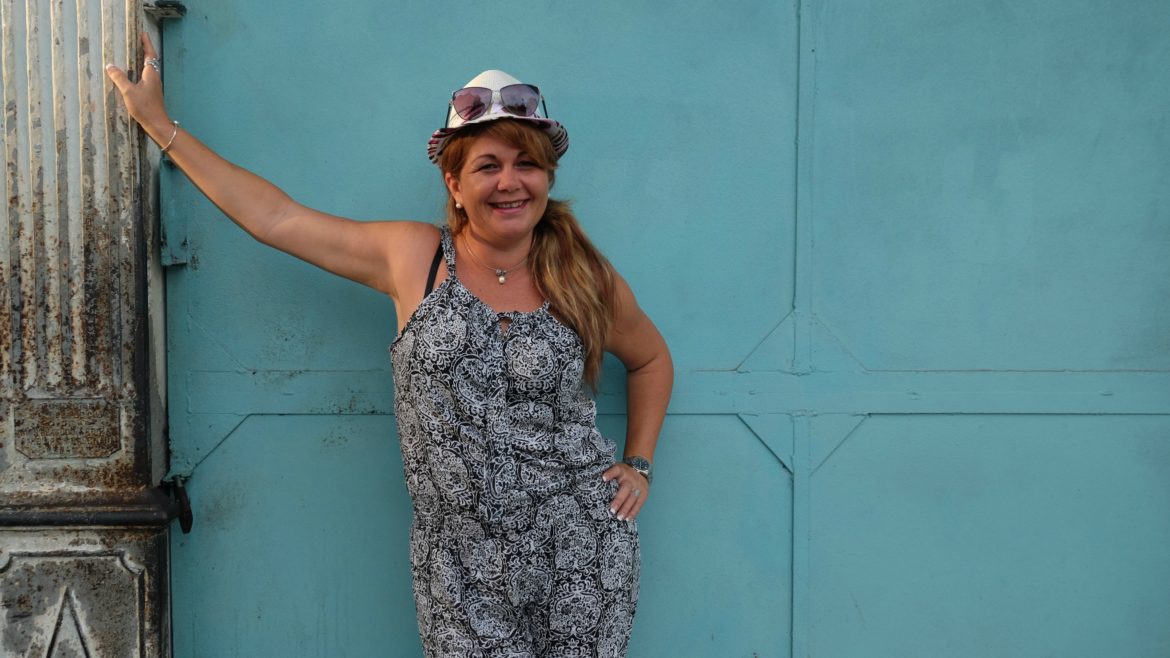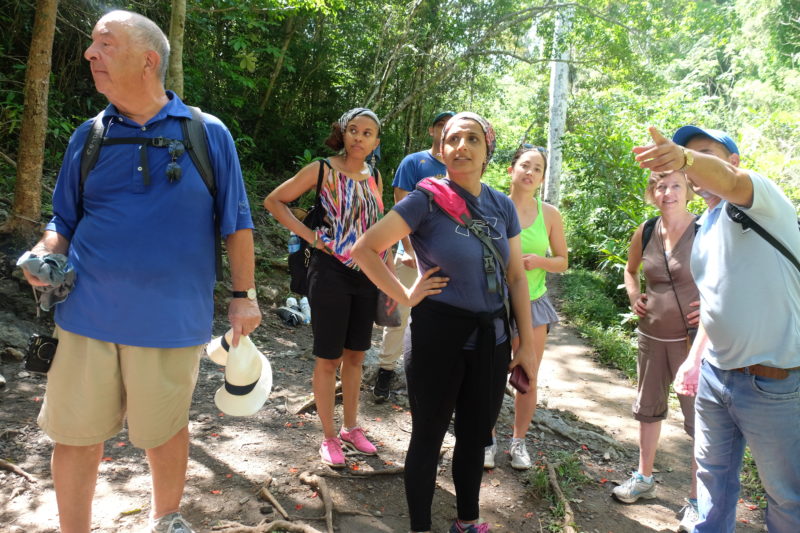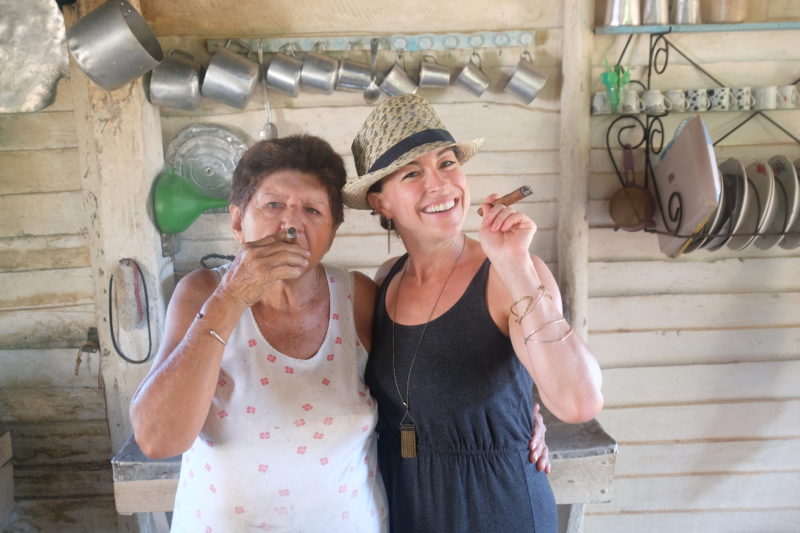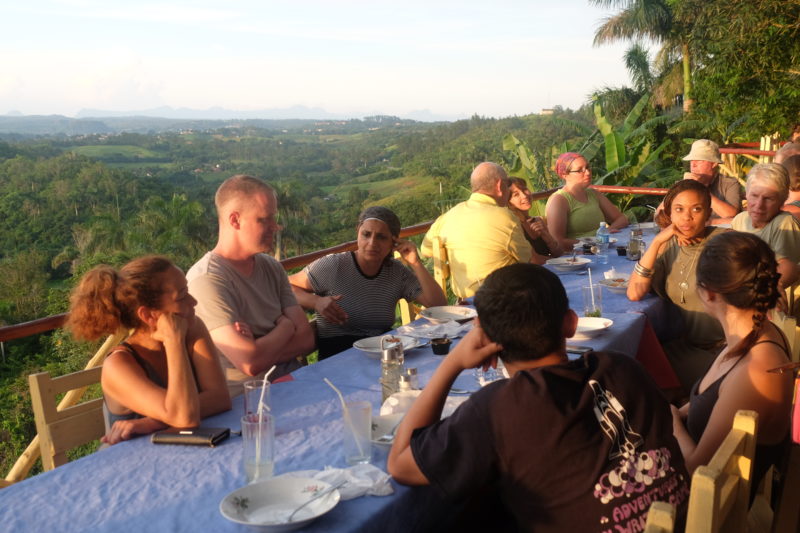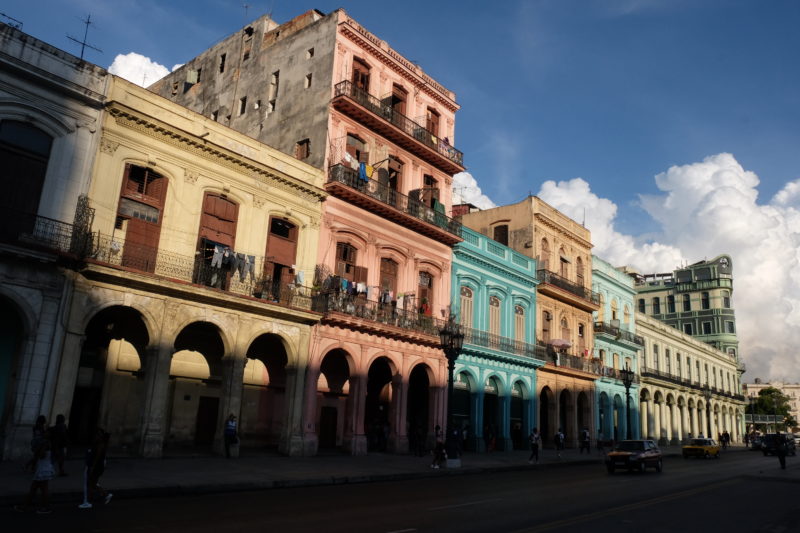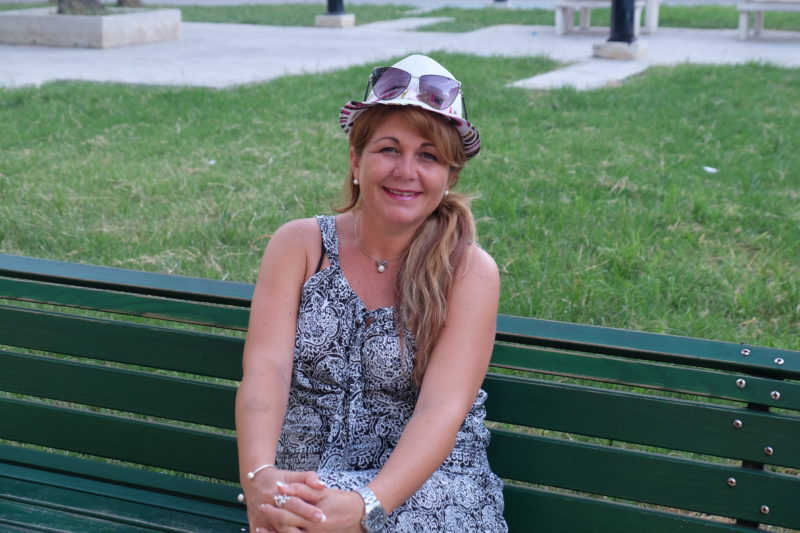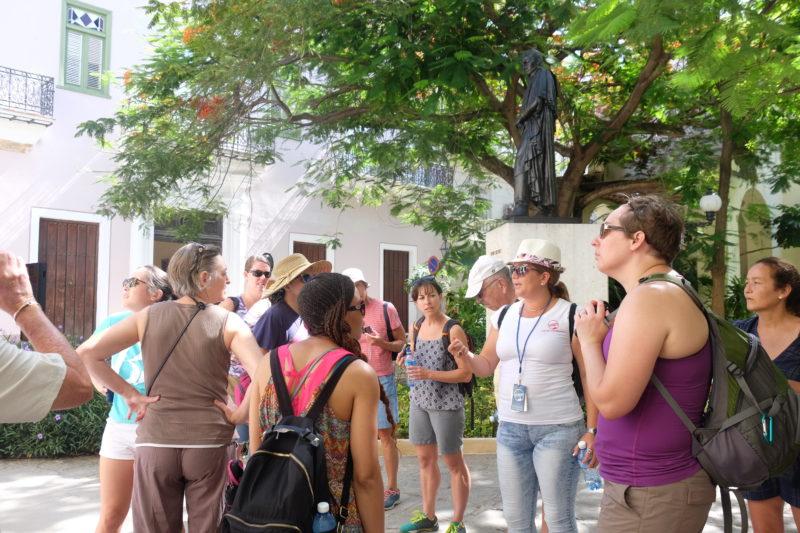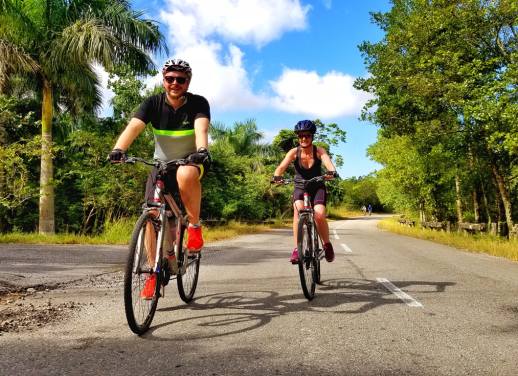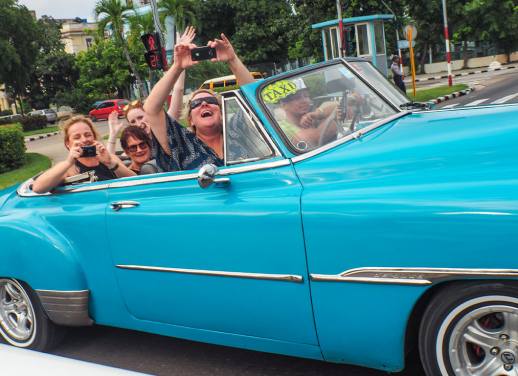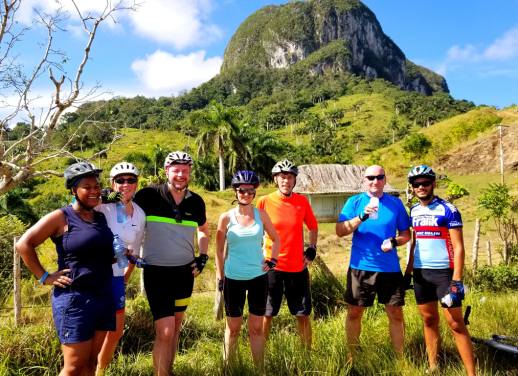Dady Marcos grew up in what she calls a “pretty standard family” in Cuba. Her grandparents were farmers. Her parents got divorced when she was four years old. “It was a struggle,” she recounts to me during the long, lush drive from Santa Clara to Havana.
Dady, however, is not a woman to be pitied. She studied a course that would enable her to become a translator, but quickly realized the travel industry was a better fit for her skillset (more lucrative, too) and discovered a job she loves. We sit by side on the bus, on day eight of the Hola Cuba tour she’s leading, and reflect on her close-to-10-years as a guide with Intrepid.
We’re on a trip that consists solely of American travelers (Intrepid Travel is one of the only licenced operators for trips such as these). She struggles to remember how many tours of this type she’s led since joining the company. “Wow, I don’t know exactly. We’ve only been running them since last year. 40 or 50, maybe?”
Judging by just how many perceptions are challenged on my group alone, this is no small feat.
You’d think that delving too deeply into US-Cuban relations on my trip would be awkward. To say the two countries have had a tumultuous relationship is quite the understatement. Yet, time and time again the transformative power of travel becomes apparent. For both leader and travelers, Cubans and Americans.
“At first I was so scared about Americans coming; I didn’t know what to expect,” Dady remembers. “The itinerary was so busy I thought it would be a challenge. But I’m very grateful – we haven’t had a bad or difficult group at all, just interested, interesting people.”
“The best thing is,” she says, “I think we’re making a difference. As a company. For Cuba.”
And the travellers themselves? They hail from all over America – Seattle to Houston, New York to Los Angeles – and represent every age – from 20-something to 70-something. Together we visit organic farms and pottery centers, we hike to waterfalls and drink more rum than is strictly necessary. We watch cookery demonstrations by local chefs and try our hand (with varying levels of success) at salsa dancing. Not only are we encouraged to chat with locals, but we stay in Casa Particulares run by them.
And by the end of the nine-day trip it seems that any initial misgivings or fears the group felt about visiting had dissipated. Jill from Oakland speaks for all when she says on our last breakfast, “Given the history of our countries, I didn’t anticipate such genuine warmth and openness”. Her father Kent echoes Dady in admitting to me that, “I didn’t know what to expect. It was my first time coming to a developing country. But the Intrepid trip took us into the heart of it.” He adds that, “I think Americans should be encouraged to come, I think it’s great to know your neighbors”.
And then, “It’s a small world. This trip helped make the world smaller. That’s important.”
He’s not the only one to feel this way. As a group, we progress quickly from small talk to deep chats. We have no wifi to distract us, and there’s no country more soulful, more beautiful in which to ponder humanity. We discover that even when political realities can invite frosty relations, people – whether from Havana or Houston, Vinales or Virginia – are ultimately the same in their hopes and their fears, their struggles and their dreams.
This discovery, undoubtedly, is aided by Dady herself. She speaks honestly and openly about Cuban life, giving us an inside perspective into both the good and the bad.
Take, for instance, the struggle that comes from living off a Cuban salary. “My best friends are doctors and surgeons. They have no debt but they get paid 20 to 30 CUCs a month”. This, she says, is why tourism is so “needful” for the country. Why? Well, her story is evidence in itself. “Coming from a farmer family I never would have had the chance to have my own house. But thanks to Intrepid, I own a house in Trinidad. I’m renovating it so I can leave my six-year-old son something.”
Not that working in tourism is all plain sailing. “I call my land the land of inconsistency,” she tells me. “The hardest thing for a tour leader in Cuba is not being responsible or knowledgeable, it’s trying to keep client expectations low. Cuba is unpredictable, it’s different from other destinations”.
That’s part of the charm, but undeniable, too. And things certainly don’t all go to plan, even on our short trip. It’s why having a sense of humor is so vital here. Of the construction causing chaos in Vinales she remarks, “I’m outraged. But hey, it’s Cuba! No-one cares”. On the topic of food, she exclaims, “Why is cooking a challenge? Because we have nothing!” (But she offers up a more nuanced view, too – handing her ration card around one bus journey and explaining that everyone has the basics to get by.)
At age 40, Dady also gives the group’s twenty-somethings a run for their money with her ability to handle late (rum-filled) nights in Trinidad until the early hours, as they do. The next day her extensions and make-up are as immaculate as ever.
Is this carefree attitude why so many Cubans seem so happy? I think to myself that I can’t be alone in noticing the joy that permeates so many streets.
“Cubans have overcome such hard periods of time that we’re able to do anything. We are absolutely not shy. We’ve tried so hard to survive that it makes us feel strong. That’s what gives us such confidence.”
“On top of that,” she adds, laughing, “We know we’re good looking!”
Dady, quite simply, is fantastic. One guy on my tour calls her a local celebrity. She reacts modestly, but he’s not far off. Everywhere we go she sees people she knows, all of whom greet her warmly. Even guidebook writers seek her out. Yet she’s still not impressed by what Lonely Planet writes about Cuba. She tells me she could do a better job and, quite honestly, I don’t doubt her.
This all comes down to her love for Cuba and its people. On the first morning, we prepare to depart from Havana. She introduces Will the driver with the utmost warmth (“an excellent driver and an even better friend”) and has only enthusiasm for our next destination (“you’ll love Vinales – the charisma, the people, the charm”).
A week later and we’re back in Havana for the farewell dinner and final night. There are speeches, there are toasts, there are emotions running high.
Dady has already told me that when every group finishes a tour they say to her, “We had a view of Cuba and we’re leaving with a different view”. She’s also warned me that every time this happens, she cries (“I’m a romantic!”). Yet even after years on the job, she reacts to our similar refrains with only heartfelt tones.
Mia from Texas tells me that Dady was the highlight of her trip. “You can go on a tour and it’s just a tour. But this was different, I really feel like I got an authentic experience.” Dady utters a simple “Thank you”, before saying to us all that “You have been one of the greatest groups. I don’t say that to every group”.
And, in all honesty, even if she does say that to every group, it doesn’t matter. It’s the country, the experience, and the people that do.
—
Inspired to see Cuba for yourself? Check out Intrepid Travel’s range of small group adventures.
American? Don’t worry, we have a 9-day tour that’s just for you!
—
(All images c/o Rebecca Shapiro, taken on Intrepid Travel’s Hola Cuba tour.)

